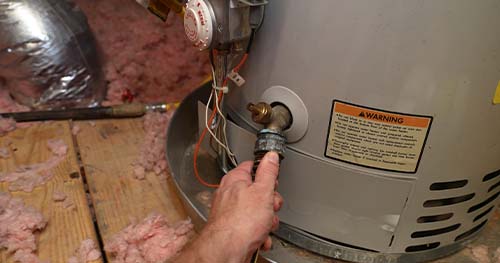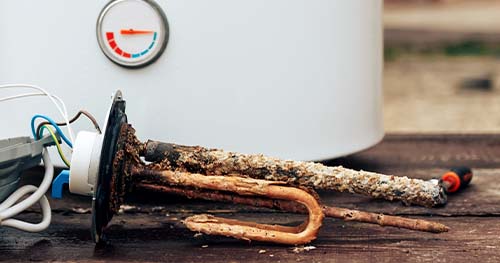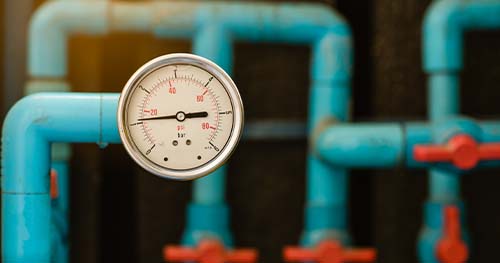[ad_1]
You probably don’t think about the water heater much, but it is one of the most important appliances in your home. It’s a vital component, and a must to keep your water heater running at peak efficiency. Water heaters typically have a lifespan of eight to twelve years. But without water heater maintenance, some may break even earlier. Despite this, there are ways to extend the life of your water heater.
If you want to avoid paying for a new water heater before you need one, check out these simple maintenance practices to help extend the life of your water heater.
Flush the water heater once a year
Water heater cleaning is an integral part of maintenance and safety. Here’s why…

Change the anode rod
Anode rods are an important component of a water heater. They protect the rest of the tank from rust and corrosion. Without the anode rods, the inside of the tank will completely rust after a few years of use.

Consider an expansion tank
An expansion tank is a device that is installed on a water heater to prevent it from overheating. When the water heats up, it expands, and if the water heater is old or has a lot of hot water running through it, this expansion can cause damage to the tank. The purpose of the expansion tank is to allow this expansion so that it does not damage the tank.
Test the pressure relief valve
The pressure release valve on the water heater is a safety device that prevents the tank from bursting if an overpressure occurs. The pressure relief valve is generally located at the top of the tank. Air is allowed to enter the tank when it reaches the set pressure. This removes some of the pressure and reduces the possibility of an explosion.

Install a water softener or whole house filter
Water softeners are a great way to protect your water heater. They remove solid minerals that can build up in tank heating elements and cause corrosion over time, leading to leaks or explosions.
Whole house water filters work by trapping impurities from your water supply. They clean the water before it enters your home, protecting you from dirt, sediment, chlorine, and other harmful contaminants that can cause health problems.
Keep your plumbing systems in good working order Book a water heater tuning with our service heroes professionals.
[ad_2]
Source link
#Extend #Life #Water #Heater

